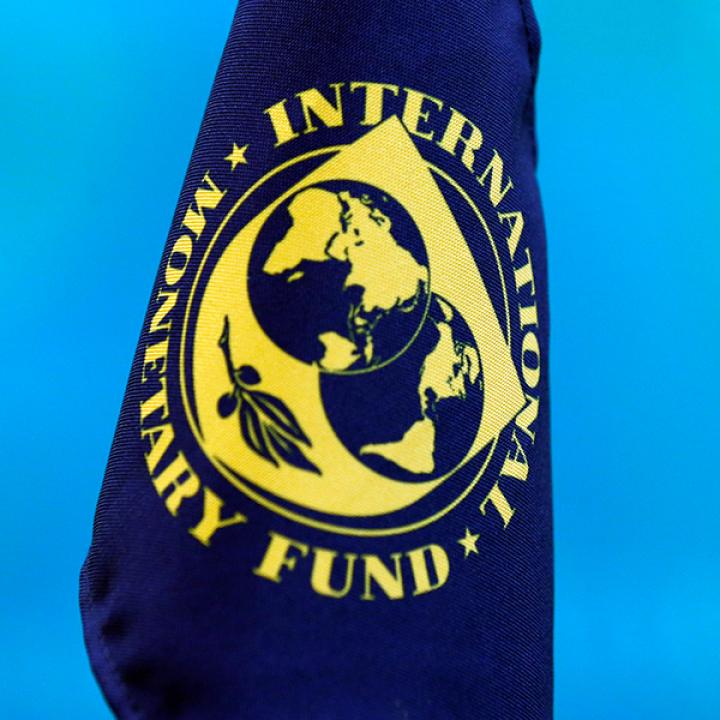

Washington often objects to loans that it deems insufficiently rigorous, but its blocking attempts usually fail—and Iran has no need for the funds anyway.
Much commentary has been heaped on the Trump administration’s apparent plan to “veto” a loan to Iran under a new IMF facility intended to help countries deal with the COVID-19 crisis. To describe this reporting as ill-informed is to be polite.
For one thing, Iran already has immediate access to $2.8 billion in existing funds from the IMF without drawing up any new loans—$700 million in its “reserve tranche” and $2.1 billion in Special Drawing Rights. This money is available without condition, yet Tehran has made no effort to use it during its ongoing health and economic crises. More important, the regime holds at least $90 billion in foreign exchange reserves, a large portion of which are now accessible. These factors raise questions about Tehran’s motivations in applying for the loan.
Furthermore, Iranian authorities and media outlets have focused on whether U.S. officials will block the loan, implying that if it goes through, it will represent a defeat for the Trump administration’s maximum pressure campaign. In fact, there is no realistic way for Washington to block any such loan brought before the IMF Executive Board. Despite loose talk of a U.S. veto, that power applies only to a very specific set of issues detailed in the annex to the IMF’s Articles of Agreement—namely, issues related to IMF governance, not to individual loans.
Indeed, the United States has a long history of unsuccessfully objecting to IMF loans. Each quarter, Treasury officials report to Congress about which loans they have supported and which they have opposed. Last year, for instance, the administration opposed loans to the Republic of the Congo in July and to Mauritania in May, yet both were approved. Going back several years, one finds no examples in which U.S. opposition has prevailed with the IMF Executive Board.
The U.S. Treasury has an ethos that it is the institution responsible for keeping the IMF on the straight and narrow by insisting on tough conditionality and strict economic measures. Accordingly, department officials often oppose IMF loans they deem economically unjustified, regardless of U.S. relations with the countries in question. For instance, their objection to the Congo and Mauritania loans was not based on any desire to place those governments under “maximum pressure,” but rather to ensure that IMF conditionality on issues such as structural economic reform was sufficiently rigorous.
In the current case, the IMF insists that conditionality for the new “emergency financing mechanisms” be minimal. As one IMF official explained in an April 1 background briefing, the only criteria for these coronavirus loans are (1) that the country be in a position to repay the funds (which Iran clearly is), and (2) “that the money is formally speaking used to address the underlying source of the financing needs, so in this case the health crisis.” Elsewhere in the briefing, officials confirm that no conditions will be put in place to ensure that governments use the funds in the manner they declare they will.
The U.S. position is that Iran does not meet even the basic criteria given its history of diverting pharmaceutical and other medical funding to support terrorism and corruption. For example, as Secretary of State Mike Pompeo noted on March 24, “Regime officials stole over a billion euros intended for medical supplies, and continue to hoard desperately needed masks, gloves, and other medical equipment for sale on the black market.” Even if the Trump administration wanted to support the loan, it could not do so. According to Section 1621 of the International Financial Institutions Act (22 U.S.C. 262p-4q), “The Secretary of the Treasury shall instruct the United States executive director of each international financial institution to use the voice and vote of the United States to oppose any loan or other use of funds” for countries that the secretary of state has determined are state sponsors of terrorism. This provision appears to have no waiver authority.
Certainly, the United States has various means of interrupting prospective loans before they reach the IMF Executive Board, such as persuading the organization’s managing director not to proceed. Yet the current official in that position, Kristalina Georgieva, hails from an EU country like all her predecessors, and the major EU governments have endorsed the idea of giving Iran an emergency loan, so it is difficult to see U.S. appeals forestalling the process in this case.
To be sure, Tehran has had much difficulty accessing its foreign exchange reserves for humanitarian trade because of U.S. restrictions on transactions with the Central Bank of Iran. Yet an IMF loan would have exactly zero impact on that issue. What does help on that front is Treasury’s quiet policy change in March to allow foreign transactions with the Central Bank for the purpose of countering coronavirus. Exporters are already leaping at this opportunity in South Korea, where Iran holds many billions of dollars in reserves; the policy change applies to other key reserve locations as well. Thus, anyone concerned about getting medical supplies to Iran should be focusing on these newly accessible reserves rather than IMF loans.
In short, the IMF loan controversy will have no impact on the country’s ability to purchase humanitarian goods. It is inappropriate for news outlets, EU governments, or anyone else to claim that blocking the loan will impede Iran’s access to such goods. The real obstacle lies in Tehran’s failure to use the many resources it can already access.
Patrick Clawson is the Morningstar Senior Fellow and director of research at The Washington Institute.



